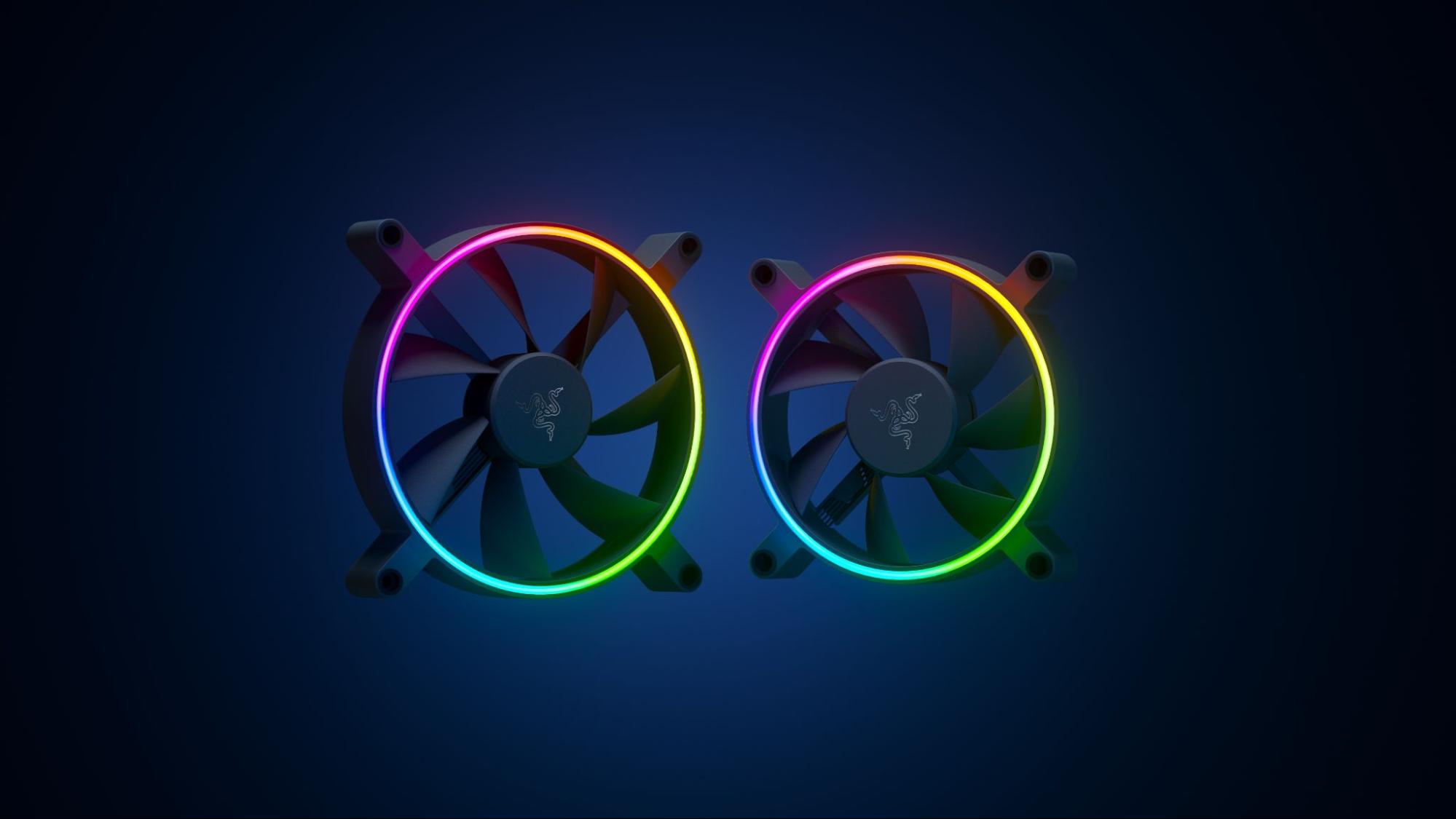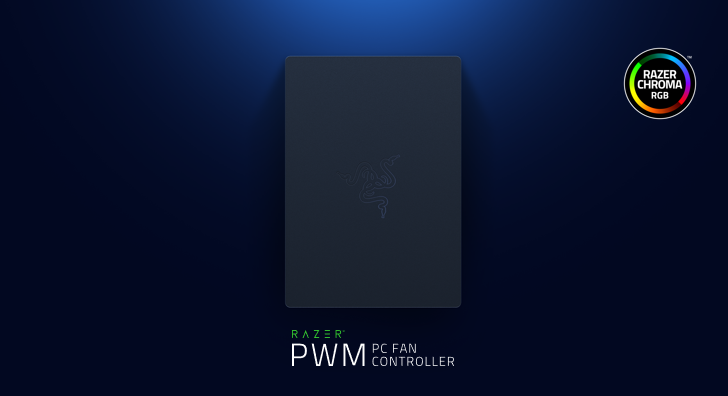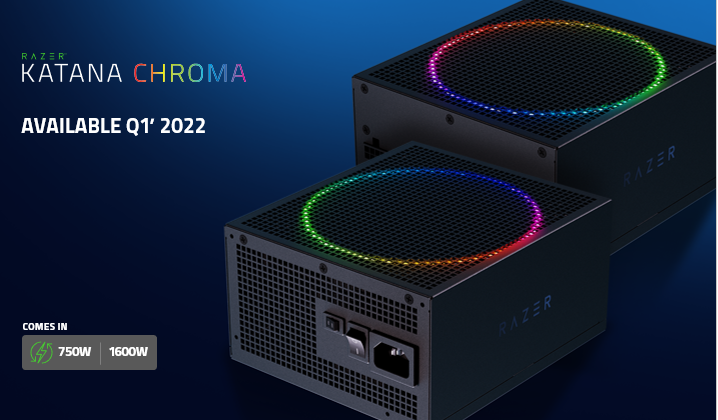Razer Inside: Company Debuts Its Own Coolers, Fans and PSUs
Chroma-equipped parts to power and cool your PC
Razer is well known for making some of the best gaming mice, as well as other peripherals like the premium Raptor monitor. But the company is delving deeper into the PC realm--literally--with a new line of components, including the Razer Hanbo Chroma AIO cooler, Kunai Chroma fans, and a Katana PSU.
As you might have guessed by their names, all of these PC parts will feature RGB lighting (save for the fan controller), and it’s all meant to be controlled by the company’s Chroma and Synapse software, which the company is emphasizing as a platform for monitoring vital system stats. Clearly, Razer is taking aim at Corsair and its iCue suite here. And representatives told us to expect more Razer components in the future, both in the form of new Razer-branded devices, as well as more partnerships like the ASRock B550 Taichi Razer Edition motherboard.
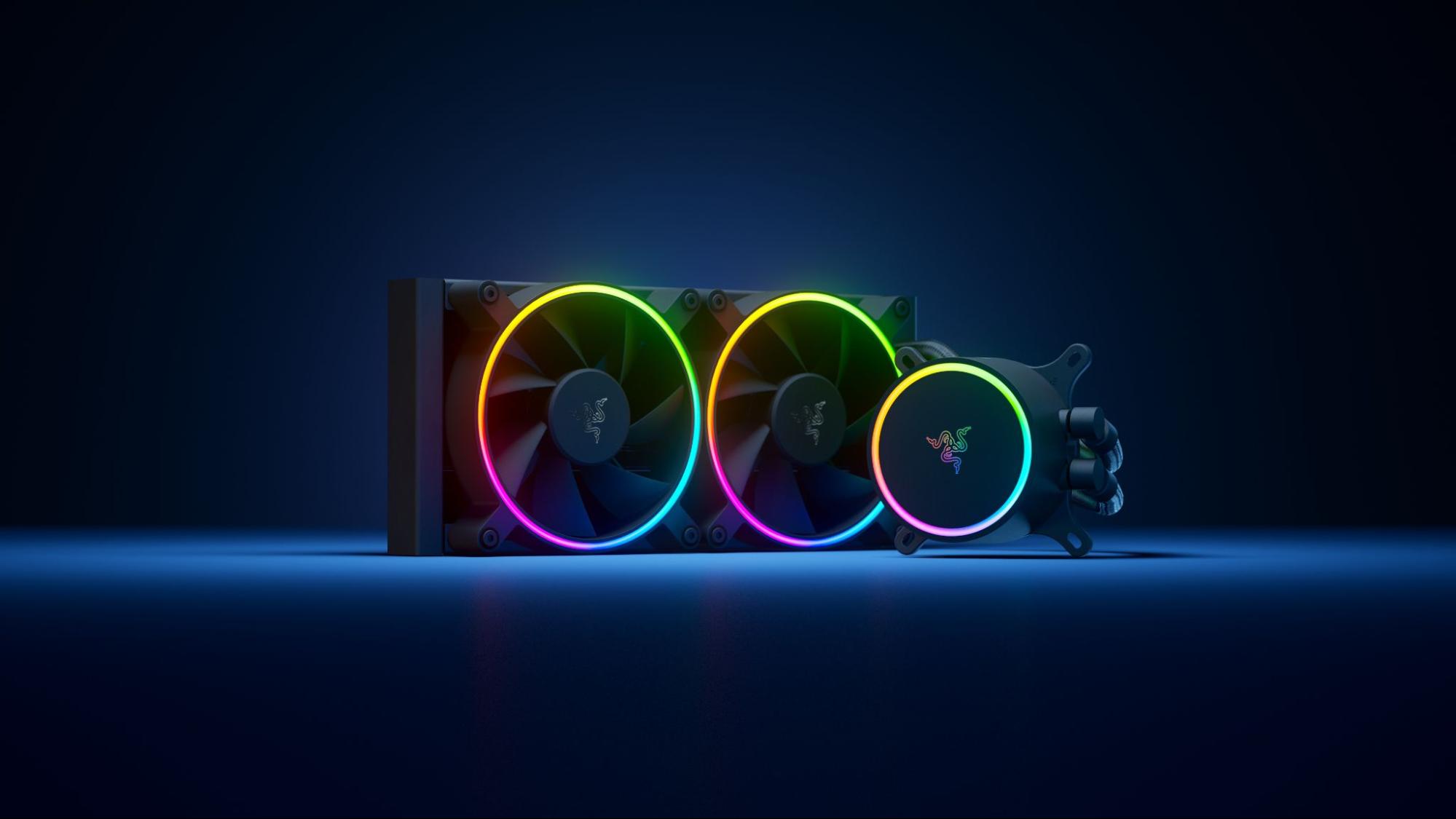
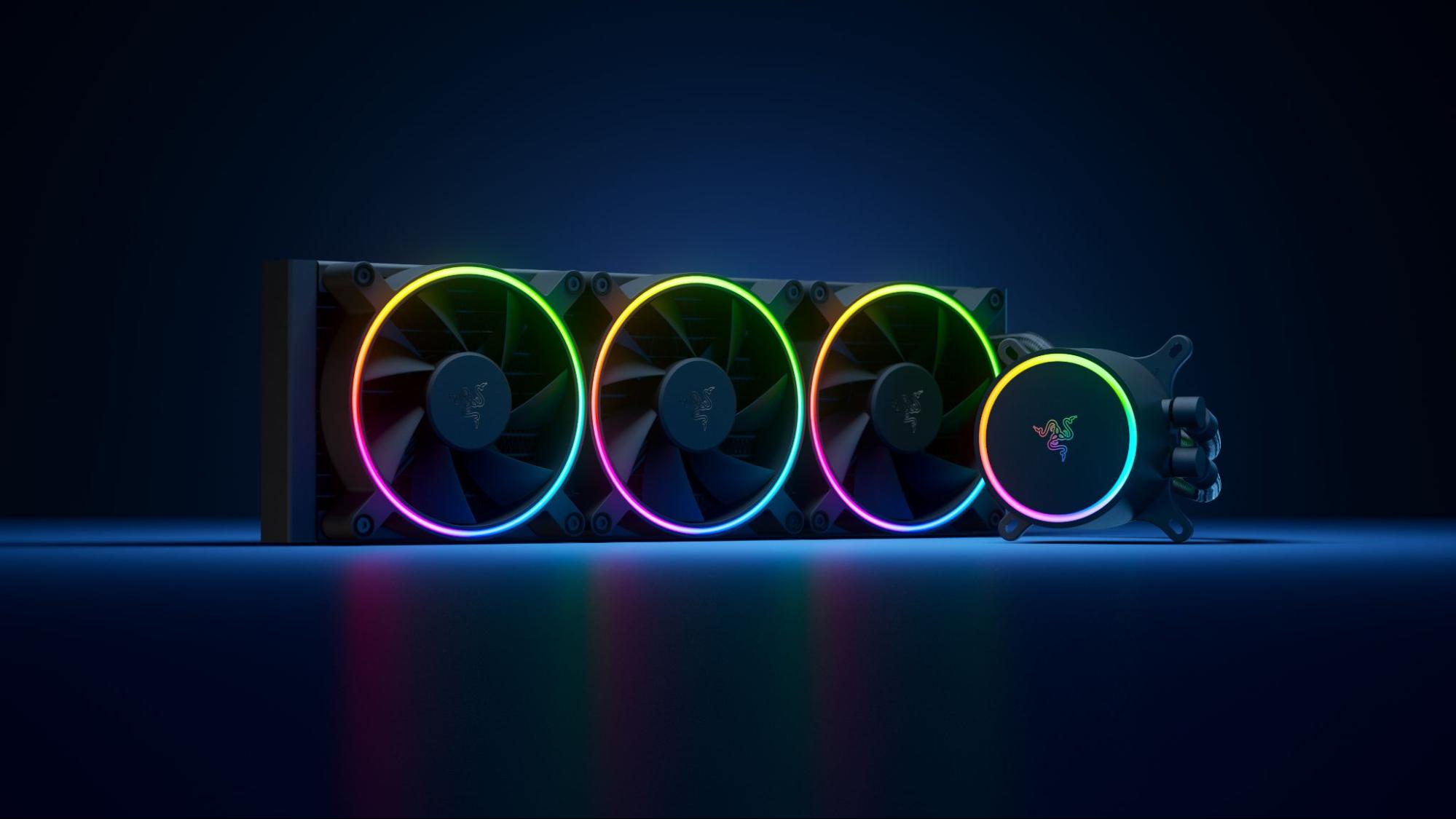
The Hanbo Chroma AIO liquid cooler will come in 240mm and 360mm varieties, and Razer says it will be available sometime in November 2021. Details were sparse, save for the fact that Razer says the coolers will be designed for “maximum thermal performance,” with an optimized pump intake and a focus on reliability and silent operation. We’re eager to get a Chroma Hanbo in for testing to see if it can compete with the best AIO CPU coolers.
If you're worried about compatibility with upcoming platforms, though, Razer lists both Intel Socket 1700 (Alder Lake-S) support, and AMD has already stated that its next-gen platform (due out sometime next year) will support current-gen AM4 coolers. So whether you're thinking about building a new AMD or Intel system in the coming months, the Hanbo Chroma AIO should be a viable option--so long as you aren't thinking of going the Threadripper route.
Next up are the Razer Kunai Chroma "hydraulic performance fans," which will ship in both 120mm and 140mm sizes, starting on October 21st. If you’re looking to outfit your whole PC with these spinners, expect to pay a pretty penny, because Razer says the fans will start at $44.99.
For that, aside from the pretty Chroma-controlled light ring, you’ll get 70% more static pressure and 26% more air movement (CFM) than the competition, while aslo being 21% quieter. Time will tell how well these spinners will compete with the best from Noctua and Phanteks.
To control the Kunai and Hanbo, Razer is also offering up a $49.99 PWM PC Fan Controller (the only new Razer product not named after a weapon), which will also be available starting today. Its most notable feature seems to be its ability to connect up to eight fans (many controllers top out at 4 or 6). It will also sport custom fan curves, and magnets so you can easily mount it where you want in any case with a steel frame.
Last up is the Razer Katana Chroma power supply lineup. Designed to compete with the best power supplies, these PSUs won’t be available until sometime in the first quarter of next year, Razer says, and will come in 750W or 1600W varieties. Obviously there’s room in there for other models, but these will be your power options at launch.
With Razer’s emphasis on quality and efficiency, the Katana Chroma power supplies will be Platinum rated and feature an ARGB fan that can turn off completely when the PSU is below a certain temperature or power threshold. Razer says its PSUs will be modular, and feature premium internal components.
We don’t know the price for the Katana PSUs yet, or have much in the way of other details. But we suspect we’ll learn more, and hopefully see these units in person by the time CES 2022 rolls around. We would not be surprised to see other Razer-branded PC components announced around that time as well.
Get Tom's Hardware's best news and in-depth reviews, straight to your inbox.
After a rough start with the Mattel Aquarius as a child, Matt built his first PC in the late 1990s and ventured into mild PC modding in the early 2000s. He’s spent the last 15 years covering emerging technology for Smithsonian, Popular Science, and Consumer Reports, while testing components and PCs for Computer Shopper, PCMag and Digital Trends.
